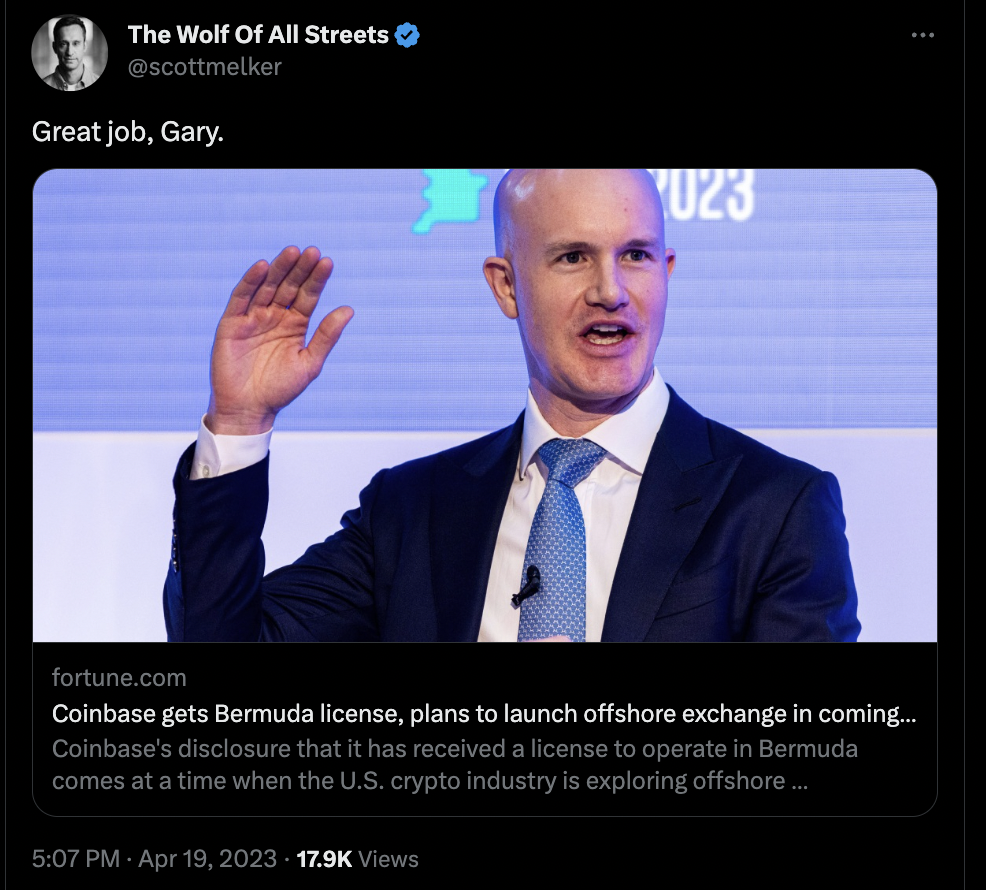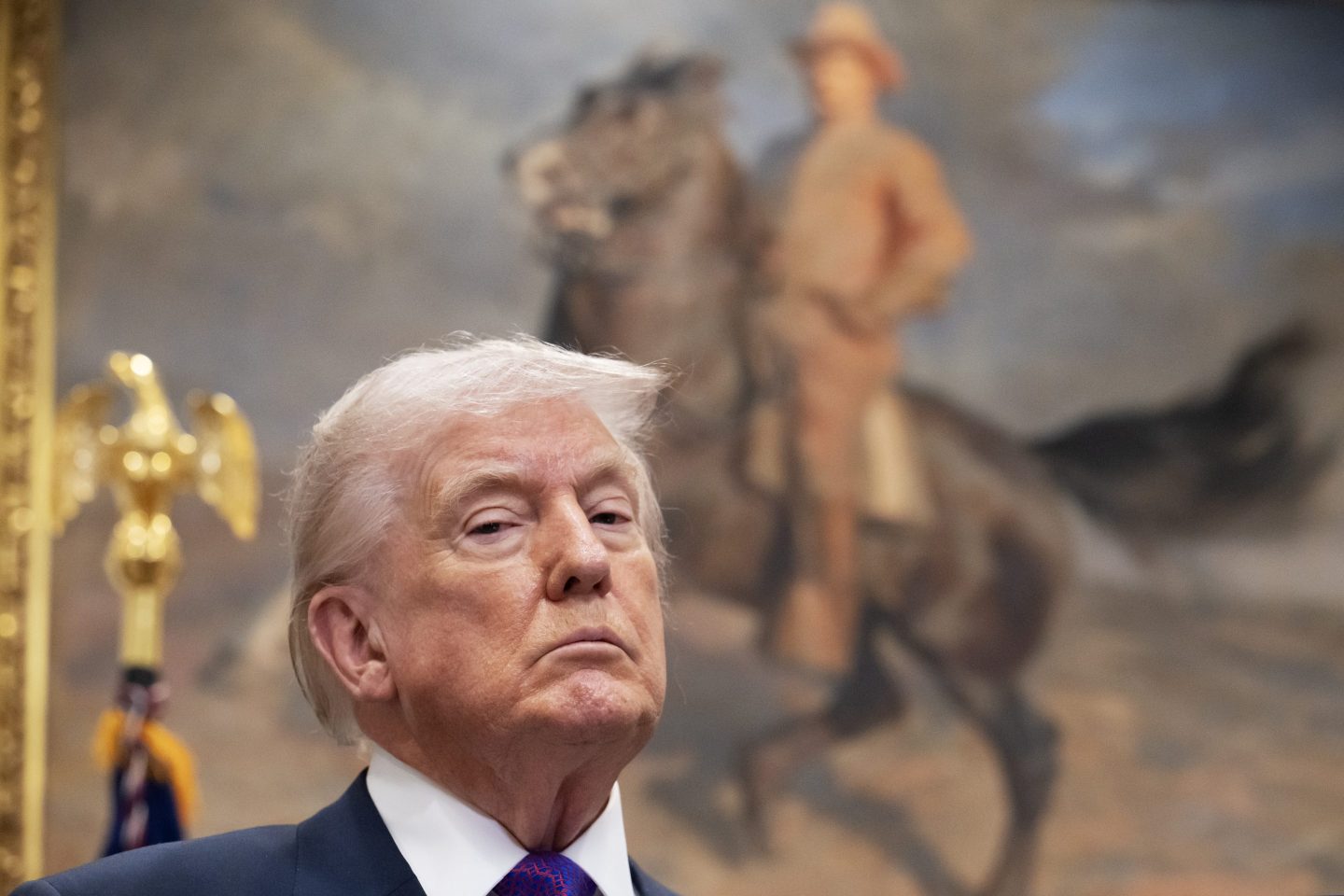Coinbase has gone and done it. After years of grumbling about the U.S. regulatory climate, the crypto industry’s flagship firm has obtained a license in Bermuda, where it will soon open a global exchange.
The move is not as dramatic as it sounds. Despite CEO Brian Armstrong’s recent mutterings about the risk of U.S. crypto firms pulling up stakes, people close to the company say Coinbase has no plans to quit the country. Doing so would be foolish given that Coinbase has a big first-mover advantage in the U.S. and, for now at least, faces no existential threat to justify fleeing entirely.
Still, the move to Bermuda is a big deal. The company has long relied too heavily on skittish retail traders in the U.S., where the regulatory climate is going to get worse before it gets better. Opening shop overseas will let Coinbase cater to global traders with a high risk tolerance, and offer things like perpetual swaps and leveraged derivatives. While retail traders can’t—and shouldn’t—trade this sort of stuff, there is brisk offshore demand for it among deep-pocketed institutional investors, and there’s no reason Coinbase shouldn’t get a cut of that action.
The optics of Coinbase’s move aren’t the best, however, as offshore money havens can feel, well, kind of sketchy, and some will invoke comparisons to FTX’s corrupt foray into the Bahamas. That said, Bermuda’s financial industry, while home to some unsavory clients, enjoys a greater deal of legitimacy thanks to its role as a hub for the reinsurance industry.
Coinbase’s arrival on the island will elevate its status as a major player in the crypto world, a status it sought to achieve when it presciently created a comprehensive digital asset regime in 2018. Bermuda will now compete with the likes of Dubai and Hong Kong to be the hub of the multitrillion-dollar crypto industry, which continues to grow whether U.S. regulators like it or not.
All of this is also a sign of the continued weakening of the U.S.’s status as the world’s preeminent financial capital. This is not something to cheer—Bermuda and other aspiring crypto hubs are not exactly models of transparency and good government—but is the result of geopolitical trends that are unlikely to reverse. And for better or worse, Coinbase is increasingly a part of those trends.
Jeff John Roberts
jeff.roberts@fortune.com
@jeffjohnroberts
DECENTRALIZED NEWS
The House of Representatives held a hearing on stablecoins, but any legislative process appears stalled for now. (Fortune)
Binance has signed up to operate in a privately owned city-state in a special economic zone set up by the government of Nigeria. (Wired)
The Panama-based options exchange Deribit is opening a zero-fee spot exchange in an apparent challenge to Binance. (The Block)
Heavily sanctioned Russia plans to introduce an “experimental legal regime” to facilitate crypto-based import-export transactions. (CoinDesk)
Taylor Swift—whose father worked at Merrill Lynch—turned down a deal to endorse FTX after undertaking due diligence that her fellow celebrities did not. (Fortune)
MEME O’ THE MOMENT
This is the web version of Fortune Crypto, a daily newsletter. Sign up here to get it delivered free to your inbox.














